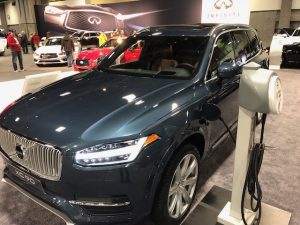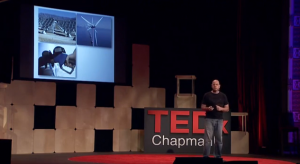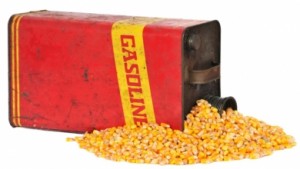5 item(s) were returned.
The transportation sector is responsible for almost a third of the United States’ greenhouse gas emissions, more than any other sector. Between 1990 and 2017, emissions from transportation increased more than any other sector in absolute terms, underscoring the importance of addressing sector emissions to help meet climate change goals. There are more reasons to reassess how we power transportation beyond just reducing emissions. As explained in our recent webinar series, some experts say that diversifying our choice of fuels could help support the American economy and potentially free us from dependence on foreign oil. The global market for alternative fuels is currently growing at a compound annual rate of 13.1% and is expected to… [more]
View InsightSenior Fellow, Business and Economics
Pacific Research Institute
Electric vehicles are heavily subsidized by the federal, state, and local governments. Based on a study I just completed, the federal subsidies for electric vehicles are worth over $42.7 billion to their recipients over the lifetime of the programs. They include the federal grant and loan programs for manufacturers, and the consumer tax credits worth $7,500 per consumer. State and local governments also provide tax credits to purchase electric vehicles (up to $7,500 per consumer), subsidize investments in charging stations, and even offer perks such as access to HOV lanes, access to free vehicle charging, and free meter parking (in… [more]
View InsightMember
U.S. House of Representatives
Along with my colleagues Reps. Tom Cole (R-OK) and Matt Salmon (R-AZ), I introduced the Fuel Choice for American Prosperity and Security Act (FCAPS, or H.R. 5107), a bill to promote fuel competition in our transportation sector. In particular, FCAPS aims to: Improve energy and national security by reducing the strategic importance of oil; Save consumers money at the pump by opening vehicles to fuel competition; Spur economic growth by allowing industry to capitalize on more of America’s natural resources; and Reduce the financial burden for automakers and consumers of meeting corporate average fuel economy (CAFE) regulations. Opening cars to… [more]
View InsightCo-Founder
Fuel Freedom Foundation
The lack of alternative energy sources to fuel our vehicles and replace expensive oil, jeopardizes U.S. national security, forces Americans to pay more at the pump, and greatly represses our ability to reduce pollution and address climate change concerns. In my state of California, 74% of all emissions – including CO2, toxic pollutants, ozone forming emissions and more – come from petroleum. Oil accounts for 65% of California’s GHG emissions, compared to 33% from natural gas, and less than 2% from coal. Meanwhile, each year, the U.S. spends more than $600 billion to buy oil and oil products, which is… [more]
View InsightManaging Director, Industrial & Environmental Section
Biotechnology Industry Organization
A recent editorial in the Wall Street Journal, co-signed by Rep. Patrick Meehan (R-Pa.), argues that growing renewable fuel obligations under the federal Renewable Fuel Standard (RFS) have come into direct conflict with declining U.S. demand for transportation fuel. The editorial asserts that current fuel distribution infrastructure and automobile engine guidelines limit the amount of ethanol that can be blended into gasoline to 10 percent, creating a “blend wall” beyond which further blending of ethanol becomes economically unreasonable. Meanwhile, in response to high fuel prices, consumers have radically curbed their driving habits and sought out new cars that meet more… [more]
View Insight



